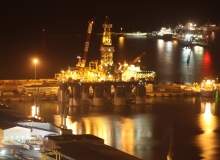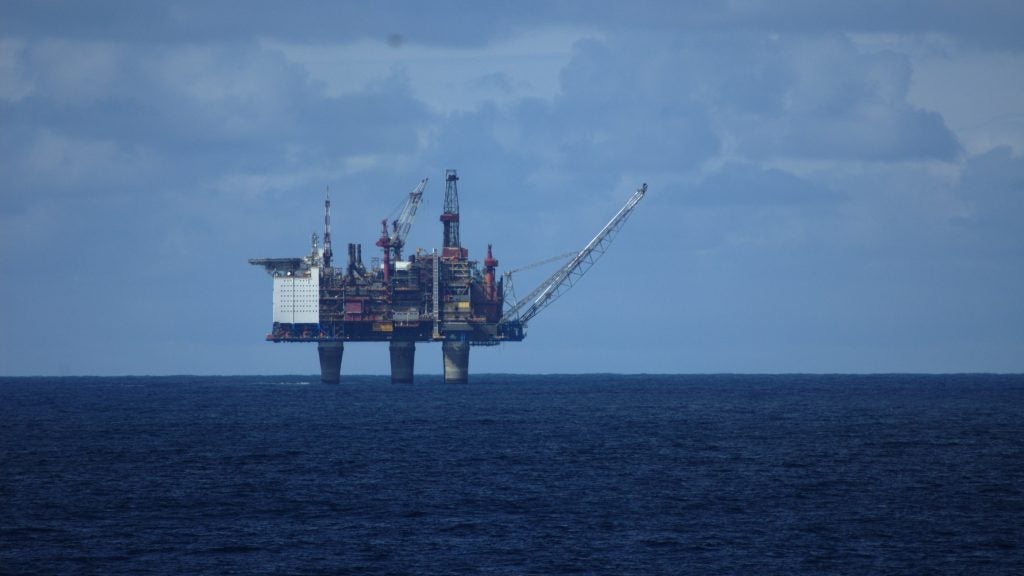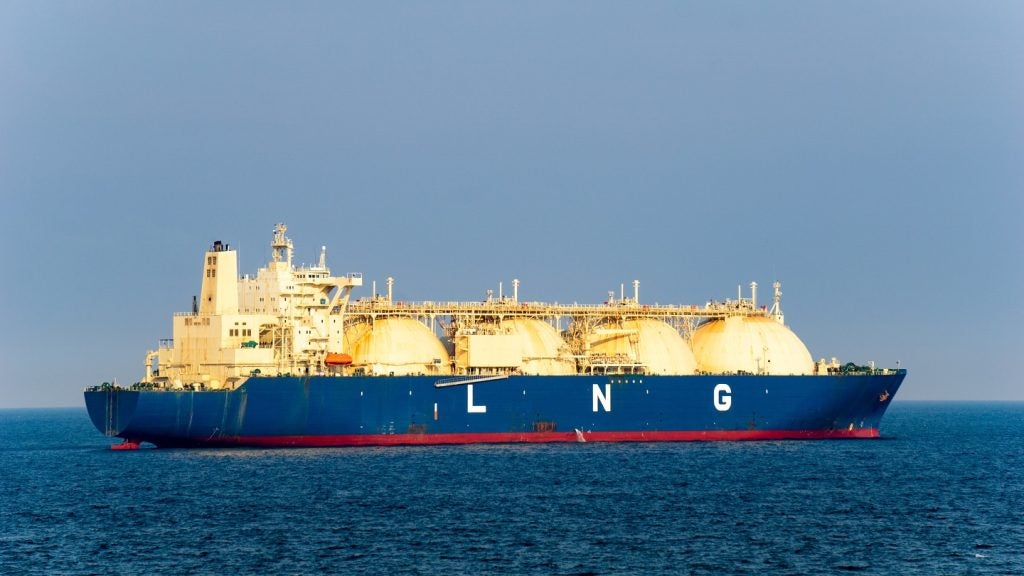

With offshore oil and gas reserves in hot-spots such as the Persian Gulf, the North Sea, the Gulf of Mexico and Brazil’s Santos Basin already in full production or well on their way, the list of obvious offshore exploration regions seems to be growing smaller by the year. When the clear choices are out of the picture, it’s no surprise that explorers have started turning their gaze to the ocean’s less conspicuous opportunities; the regions that the industry once passed over are now meriting a second look.
This shift of attention towards secondary oil and gas regions could be good news for South Africa. The country has thus far made only modest steps towards developing any possible offshore hydrocarbon deposits, with national oil company PetroSA’s extraction of crude oil from its Oribi and Oryx fields for processing at Mossel Bay representing the extent of its offshore production.
South Africa offshore: a flurry of activity
But over the last few years, interest from oil and gas majors has been steadily picking up, with a spate of offshore exploration deals raising the prospect of more concerted efforts to find oil off South Africa’s shores in 2014.
Oil and gas exploration companies have flocked to the Kenyan coast after major discoveries in nearby Tanzania and Mozambique.
See Also:
"[South Africa is] actually one of the spots we’re looking at for 2014 to see what will happen because there will be some exploratory wells by some of the majors, so we’re really waiting to see if a new play is going to open in that space," says Ernst & Young’s Africa oil & gas leader Elias Pungong. All of a sudden, it seems South Africa’s offshore sector has sprung to life.
How well do you really know your competitors?
Access the most comprehensive Company Profiles on the market, powered by GlobalData. Save hours of research. Gain competitive edge.

Thank you!
Your download email will arrive shortly
Not ready to buy yet? Download a free sample
We are confident about the unique quality of our Company Profiles. However, we want you to make the most beneficial decision for your business, so we offer a free sample that you can download by submitting the below form
By GlobalDataSasol won exploration rights from the Petroleum Agency of South Africa in November 2013 to look for hydrocarbons in the Durban and Zululand basins off the country’s east coast. "This is Sasol’s first operated Exploration Right licence in South Africa for at least a decade," said Sasol Petroleum International managing director Ebbie Haan.
Sasol’s licence joins a clutch of other exploration deals in recent months, including the South African government’s transfer of the licence for offshore Block 2A off the country’s west coast, which includes the Ibhubesi Gas Project in the promising Orange Basin, to Australian company Sunbird Energy in October 2013. The company has stated that it wants to move fast in its development of the project, and aims to complete its preliminary field development plan in the first half of 2014. Other majors that have won licences in the region include Anadarko, Chevron, Total and ExxonMobil.
Interest from big oil: why now?
With so much of South Africa’s offshore geological data incomplete or out of date, and precious little pre-existing activity in this area, why is the oil and gas industry suddenly so interested in exploring South African waters?
It’s important to keep in mind the much broader surge in offshore exploration and production occurring all over Africa, and southern Africa in particular. Significant discoveries have been made in the last few years in nearby countries like Mozambique, Tanzania, Angola and Namibia, and the trend looks set to maintain its momentum in the near future.
"If you look right across the border in Mozambique, what do you see? You have the Rovuma Basin with unprecedented levels of gas finds offshore," says Pungong. "Look at Tanzania, it’s the same story. And so frontier explorers think that what is good over the border could be possible in South Africa. If you were a betting man, looking at what is happening right across Africa – Mozambique, Tanzania, Kenya, Ethiopia, Angola, and now in places like Namibia – you might well bet that it will happen. I mean, look at East Africa today; if we’d had this conversation five years ago, my god, we wouldn’t even talk about it."
And despite the shortage of data, enough seems to be known about South Africa’s general geological characteristics – and their similarity to proven areas like West Africa, the Falklands and Mozambique – to encourage further investigation.
"I think [oil companies] are seeing some similarities in the geology compared to other places around Africa and around the world. Maybe Brazil. They are looking at the geologies and the similarities," Pungong suggests.
"So they really have a fair idea; I don’t think they are coming here blind, they have a fair idea of what they could find. There’s never any certainty when it comes to oil and gas, but these guys, before they go somewhere, especially some of the supermajors, you can be sure they are pretty optimistic about what they could find in these places."
The country’s tough sea conditions and deepwater challenges have served as a disincentive in the past, but as Pungong notes, technical innovation is chipping away at these barriers.
"In Cape Town, where I was late last year, there are all sorts of new technologies…Some of the majors are at the forefront [of technology], and you can see them lingering around the South African coast. If you look at Angola, deepwater pre-salt technology has been used to great success. So I think they want to try that on South Africa’s shores and see what they can find."
South Africa’s offshore regulation debate
BP’s global recruitment director Jon Tait gives the low-down on the recruitment issues and opportunities dominating 2014.
As has become traditional in resource-rich countries that attract the attention of international energy giants, there has been the traditional back-and-forth between the South African government and industry on issues of regulation and the financial framework for the country’s nascent offshore industry.
The locus of disagreement in this case are the proposed amendments to South Africa’s Mining and Petroleum Resource Development Act (MPRDA), which sets fiscal terms for resource projects in the country. The changes broadly allow the government a greater stake in resource projects while also limiting its risk and responsibilities.
Proposed amendments include switching the government’s interest to a 10% lifetime carry, which would give it a stake in resource project revenues without having to pay a share of costs. The state, meanwhile, would have the authority to declare resources ‘strategic’ at its discretion, potentially opening these assets to price controls and export limits. The proportion of project companies that must be owned by disadvantaged groups under South Africa’s Black Economic Empowerment policy is also being proposed to increase from 10% to 26%.
The mining and O&G industries argue that the new draft changes, which are currently in the consultation phase, are too hostile to industry and would drive away investment, which could deal a crippling blow for a nascent industry like the country’s offshore sector. South Africa’s Standard Bank has joined the chorus of dissenting voices, warning that disadvantageous terms could prompt foreign investors to take their cash elsewhere.
Getting the balance right
But Parliament has to consider the national interest as well as the needs of industry, and the balance could take time to get right. "There’s always going to be discussion between the oil companies and the government on what is fair and what is not fair," says Pungong. "It’s always been in the history of the industry – if you look at the Ernst & Young survey about risk and opportunity, it always features very high on those surveys. What I can say is that the discussion has to continue. Maybe initially the balance will not be right; as the industry matures, as we’ve seen in other places, I think they will get the balance almost right, although nothing is ever perfect."
It’s certainly a sign of the shifting dynamic in the relationship between African governments and foreign industry, with states increasingly confident in their drive to maximise economic benefits and mitigate public risk. South Africa signalled its own assertiveness in offshore environmental regulation when the Petroleum Agency of South Africa (PASA) suspended offshore exploration off the country’s east coast at the end of 2013 due to sound pollution concerns. "When there’s a big scramble, as we have in the oil and gas sector in Africa today, African governments can really call the shots," says Pungong.
Although the debate over financial terms and regulatory requirements is far from over, the economic potential if the South African offshore sector takes off is immense. Standard Bank has estimated that if the industry could produce an output of 450,000boe per day, it could meet its domestic demand, helping to boost the country’s balance of payments, sustain 36,000 jobs and eliminate its reliance on imported petroleum products – tellingly, Sunbird Energy has signed a memorandum of understanding with state power company Eskom to study the feasibility of supplying gas from the Ibhubesi Gas Project to Eskom’s Ankerlig power station, removing the need for the plant’s current expensive diesel feed stock.
Offshore discoveries represent an exciting prospect, and one that could revolutionise the South African economy. But all the excitement will be for nought if companies aren’t able to make those crucial discoveries. As Pungong cautions: "I think the most important thing is for us to have an oil find, and then every other thing can be discussed afterwards."


.gif)



